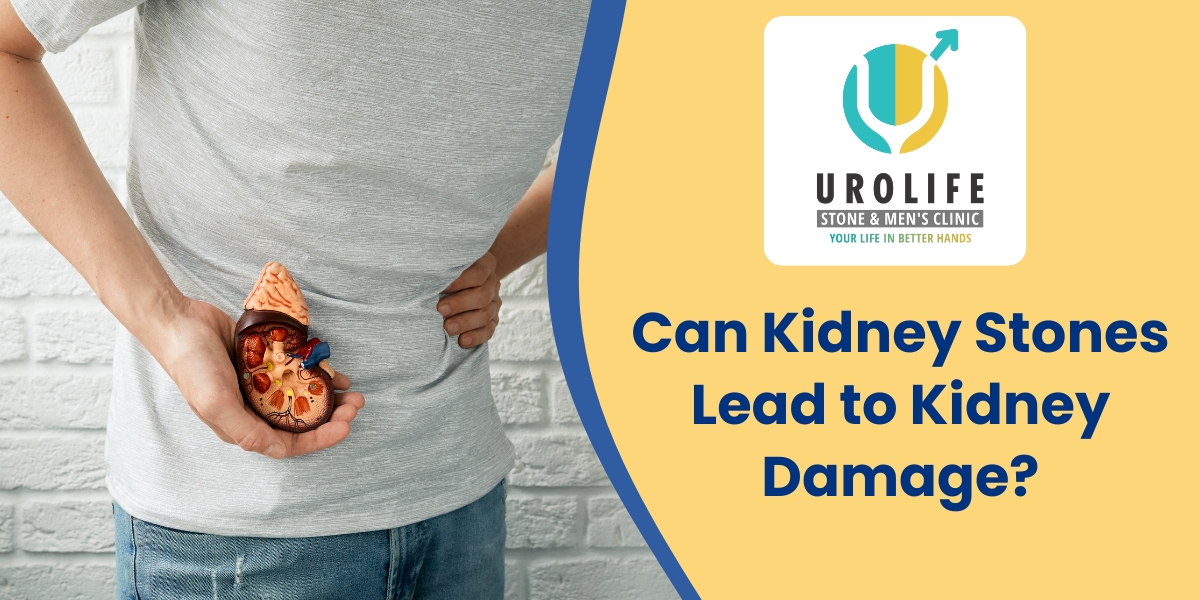Kidney stones are a common yet painful condition that affects millions of people worldwide. While they are often treatable, many individuals wonder whether kidney stones can lead to more serious complications, such as kidney damage.
Understanding Kidney Stones
Kidney stones are hard deposits made of minerals and salts that form inside your kidneys. They can vary in size, from as small as a grain of sand to as large as a golf ball. Common symptoms include severe pain in the back or side, blood in the urine, nausea, and difficulty urinating.
While small stones may pass on their own, larger stones can cause blockages in the urinary tract, leading to complications if left untreated.
Can Kidney Stones Cause Kidney Damage?
The short answer is yes, kidney stones can potentially lead to kidney damage, but it’s not inevitable. Here’s how:
- Urinary Blockages: Large kidney stones can obstruct the flow of urine, causing pressure to build up in the kidneys. This can lead to swelling (hydronephrosis) and, if untreated, may damage kidney tissue over time.
- Infections: Blockages caused by kidney stones can also increase the risk of urinary tract infections (UTIs). If these infections spread to the kidneys, they can cause a serious condition called pyelonephritis, which may result in permanent kidney damage.
- Chronic Kidney Disease (CKD): Repeated kidney stones or prolonged blockages can contribute to chronic kidney disease, a condition where the kidneys gradually lose function.
- Reduced Kidney Function: In severe cases, untreated kidney stones can lead to acute kidney injury (AKI), a sudden loss of kidney function that requires immediate medical attention.
How to Prevent Kidney Damage from Kidney Stones
The good news is that kidney damage from kidney stones is preventable with proper care and treatment. Here are some steps you can take:
- Stay Hydrated: Drinking plenty of water is one of the best ways to prevent kidney stones. Aim for at least 8-10 glasses of water daily to dilute urine and reduce the risk of stone formation.
- Follow a Balanced Diet: Limit foods high in oxalates (like spinach and nuts) and sodium, as they can contribute to stone formation. Include calcium-rich foods in moderation, as low calcium intake can increase the risk of stones.
- Seek Timely Treatment: If you experience symptoms of kidney stones, such as severe pain or blood in the urine, consult a specialist immediately. Early intervention can prevent complications.
- Regular Check-ups: If you have a history of kidney stones, regular monitoring and follow-ups with a kidney specialist can help detect and manage any issues early.
When to See a Kidney Stone Specialist
If you’re experiencing symptoms of kidney stones or have a history of recurrent stones, it’s essential to consult a kidney stone specialist. A specialist can provide personalized treatment options, such as medication, lifestyle changes, or minimally invasive procedures like lithotripsy, to break down and remove stones.
Meet Dr. Irfan Shaikh – Kidney Stone Specialist in Pune
For those in Pune, Dr. Irfan Shaikh is a trusted name in kidney stone treatment and kidney health. With years of experience Dr. Irfan Shaikh specializes in diagnosing and treating kidney stones using the latest medical advancements. Whether you are looking for preventive care or treatment for existing stones, Dr. Irfan Shaikh offers comprehensive solutions tailored to your needs.
If you are concerned about kidney stones or kidney health, don’t hesitate to reach out to Dr. Irfan Shaikh, a leading kidney stone specialist in Pune. Early intervention can make all the difference in protecting your kidneys and overall health.
